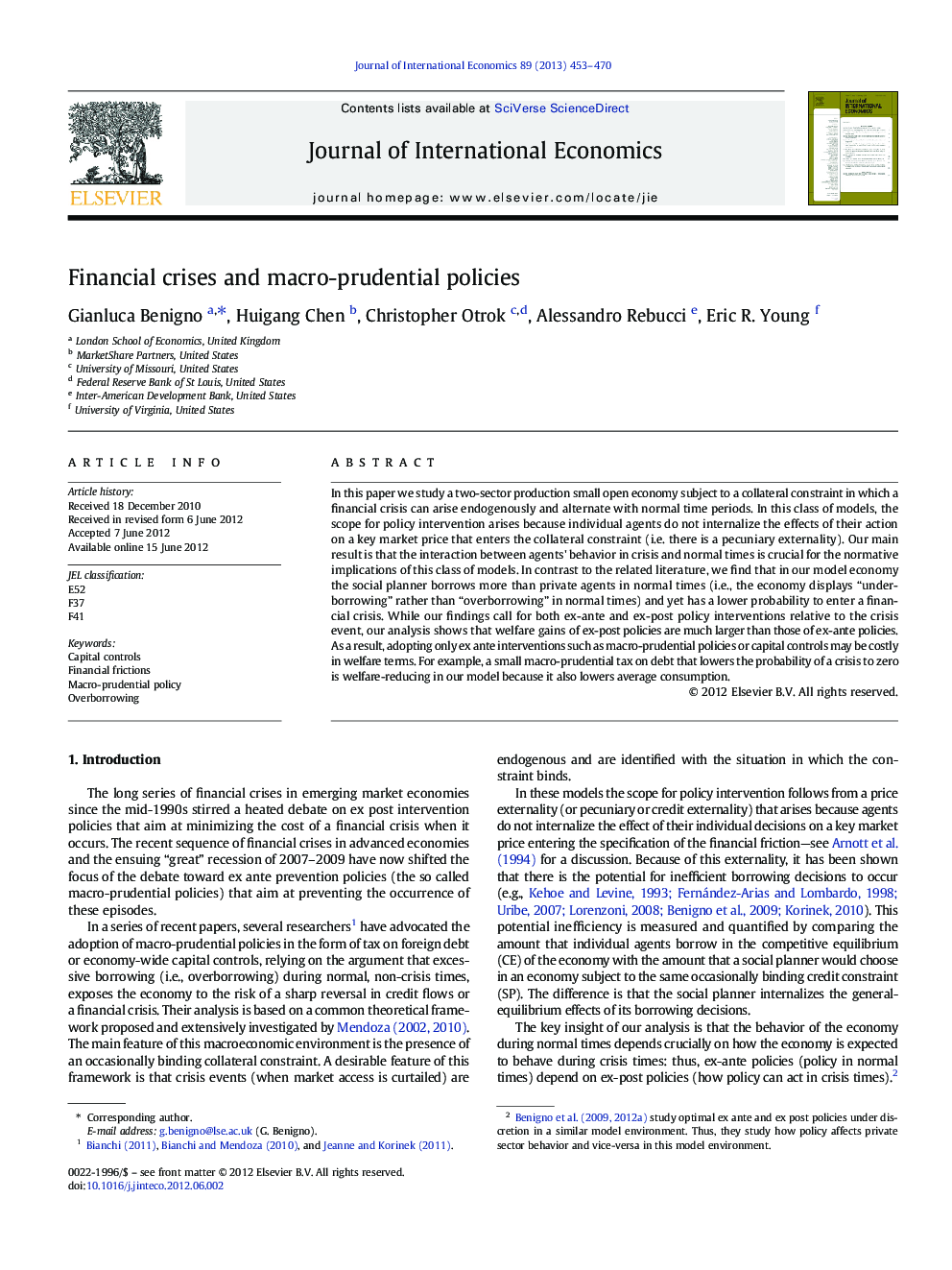| Article ID | Journal | Published Year | Pages | File Type |
|---|---|---|---|---|
| 962340 | Journal of International Economics | 2013 | 18 Pages |
Abstract
In this paper we study a two-sector production small open economy subject to a collateral constraint in which a financial crisis can arise endogenously and alternate with normal time periods. In this class of models, the scope for policy intervention arises because individual agents do not internalize the effects of their action on a key market price that enters the collateral constraint (i.e. there is a pecuniary externality). Our main result is that the interaction between agents' behavior in crisis and normal times is crucial for the normative implications of this class of models. In contrast to the related literature, we find that in our model economy the social planner borrows more than private agents in normal times (i.e., the economy displays “underborrowing” rather than “overborrowing” in normal times) and yet has a lower probability to enter a financial crisis. While our findings call for both ex-ante and ex-post policy interventions relative to the crisis event, our analysis shows that welfare gains of ex-post policies are much larger than those of ex-ante policies. As a result, adopting only ex ante interventions such as macro-prudential policies or capital controls may be costly in welfare terms. For example, a small macro-prudential tax on debt that lowers the probability of a crisis to zero is welfare-reducing in our model because it also lowers average consumption.
Related Topics
Social Sciences and Humanities
Economics, Econometrics and Finance
Economics and Econometrics
Authors
Gianluca Benigno, Huigang Chen, Christopher Otrok, Alessandro Rebucci, Eric R. Young,
